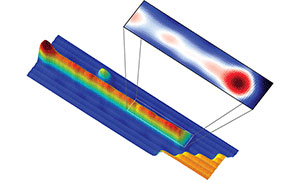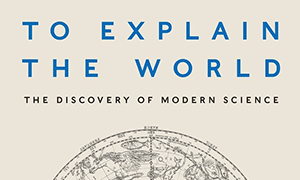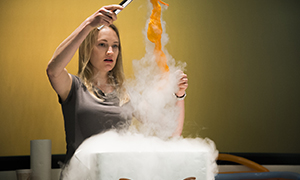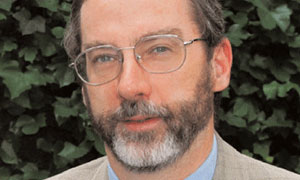Fall 2015:
Dear Alumni and Friends,
I am happy to be sending you our Fall newsletter, and I hope you enjoy reading the linked reports about the exciting work going on in our Physics Department, including a look at our machine shop which now provides services to the entire College of Natural Sciences.
At the beginning of the Fall Semester two new Assistant Professors, Tim Andeen and Raphael Flauger, joined our Department. Tim Andeen is an experimental high-energy physicist; his research focuses on searching for new particles and interactions that lie outside the current Standard Model of particle physics using the ATLAS detector at the Large Hadron Collider, located at the CERN laboratory in Geneva, Switzerland. The LHC collides protons against protons at the highest collision energies ever achieved (about 13 TeV). In addition to analyzing data that is being taken today, Tim is also developing systems that will be part of a future detector upgrade that will increase the reach of the experiment by improving its capability to take data with a higher rate of proton-proton collisions.
Raphael Flauger is a theorist who works on models of the early universe. In 2014 he was a leader in challenging the BICEP2 collaboration’s claim that their observation of B-mode polarization in the cosmic microwave background radiation constituted evidence for primordial gravity waves (which made headlines in many major newspapers); Raphael showed that the observed polarization could be accounted for by the effect of galactic dust. Raphael is also interested in both formal aspects and applications of quantum field theories. Just a couple of weeks ago Raphael received a prestigious award for young researchers, the Breakthrough New Horizons in Physics prize for “for outstanding contributions to theoretical cosmology.”
As these two young physicists are joining our Department, one of our most senior and distinguished colleagues, George Sudarshan, has announced his retirement at the end of this semester. George has made many significant contributions to physics. For instance, working with Robert Marshak, George identified the V-A structure of the weak interaction. He did foundational work in quantum optics, and originated many interesting ideas such as tachyons and the quantum Zeno effect, the latter of which was first demonstrated here at UT in Mark Raizen’s lab. George came to UT in 1969 and immediately put our Physics Department on the particle theory map; over the decades he has been one of our most prominent and respected faculty members.
After serving for seven months as Interim Chair, I began a four-year term as Chair at the beginning of the Fall Semester. By now I’ve had enough on-the-job experience to understand the tremendous opportunity we have to take our Department to a higher level of excellence, and I also understand the obstacles we must overcome. Over the next few years I am committed to recruiting outstanding mid-career physicists and promising junior physicists to our faculty, and I expect to receive strong support from Linda Hicke, the Dean of the College of Natural Sciences, to do so. In addition to enhancing the quality and impact of our research programs, we will be able to increase the diversity of our faculty with these new recruitments.
Our future success will depend on generating the resources to compete with the top physics departments in the U.S., and also to support our students, especially graduate students, who play critical roles in our research. Our alumni and friends are essential to developing these resources, especially by establishing new endowments and supplementing existing ones. Such gifts can provide an opportunity to honor the past (perhaps a professor who was influential in your life) while helping us move forward. This is why reconnecting with and engaging alumni is among my highest priorities. Giving from alumni, parents, and friends will be pivotal for our Department’s future success. I encourage you to make a gift to the Physics Department Chair’s Fund at this link or to contact me about more targeted giving at chair@physics.utexas.edu
Last year we graduated 86 students with bachelor’s degrees and 36 with Ph.D’s, continuing the Department’s legacy of educating young physicists who are well-prepared and ready to change the world. While the research we do is important, the largest impact of our Department may be through our former students. Many go on to do important work in other universities, in industry, and in government. We would like to hear from you about your life after UT, and we’re always happy to reconnect with our former students. I hope to share some of your stories in future editions of this newsletter. We want you to stay engaged and involved with the Physics Department, whether on campus in Austin or electronically by email or through our LinkedIn Group. We appreciate your support.
Jack Ritchie
Chair, Department of Physics
Please click here for the full Fall 2015 Newsletter.
Spring 2015 Newsletter:
Greetings from your UT Campus!
Letter from the Chair
Your Physics Department continues to be at the forefront of research while dedicating itself to quality and innovative education for undergraduate and graduate students. As one of our former students, you are one of our most important ambassadors. We are pleased to send you the latest edition of the department’s newsletter.
Our department is going through a leadership transition, with Richard Hazeltine having recently stepped down as Chair. I am filling in as Interim Chair until our next long-term Chair is in place. Our Department is doing well, and it is an honor for me to have the opportunity to help out during this transition.
During this Spring semester several of our faculty received awards that acknowledge their important contributions to teaching. Austin Gleeson was a recipient of the 2015 Pro Bene Meritis Award from the College of Liberal Arts. This award is in part recognition of Austin's many years of devoted teaching in the Plan II Honors Program. Can Kilic and Boris Breizman received 2015 College of Natural Sciences Teaching Excellence Awards. John Markert was named to UT's Academy of Distinguished Teachers, in recognition of his many years of significant contributions to undergraduate education. Our commitment to teaching excellence is strong in the Physics Department
This Spring we have been recruiting new faculty, and as the semester is winding down it is clear that we have been successful. In the Fall newsletter we will introduce you to our new faculty members.
The cutting-edge research that goes on here is, for the most part, funded by grants from external sources. Our faculty are competing effectively for external research support during a period when Federal funding for science has been somewhat stagnant. Despite this success, we need your help. Giving from alumni, parents and friends is critical for the Physics Department to be able to support our faculty and students in a broad array of endeavors. I ask you to consider making a gift to our Department which we will use in the coming year to award scholarships and fellowships for undergraduate and graduate students. You can learn more about the various giving opportunities on our website under Giving.
We are always happy to hear from our former students. Let us know how you’re doing.
Sincerely,
Jack Ritchie
Interim Chair, Department of Physics
News Stories
Share Your Story
Do you have a success story? We want to hear how you're changing the world in your community. Have you won an award or been published? Do you volunteer regularly? Have you started a new business venture? Share your story with us!



